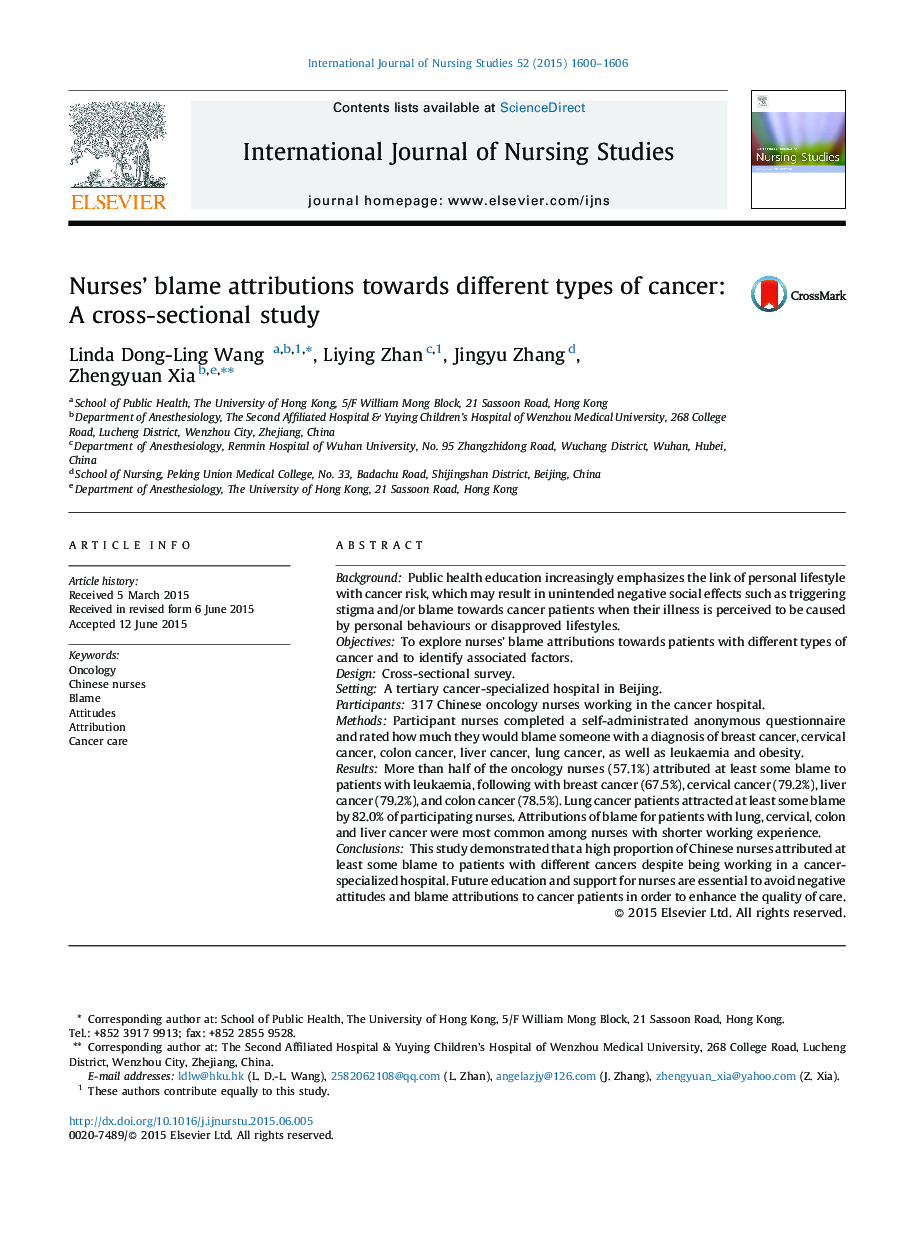| Article ID | Journal | Published Year | Pages | File Type |
|---|---|---|---|---|
| 1076159 | International Journal of Nursing Studies | 2015 | 7 Pages |
BackgroundPublic health education increasingly emphasizes the link of personal lifestyle with cancer risk, which may result in unintended negative social effects such as triggering stigma and/or blame towards cancer patients when their illness is perceived to be caused by personal behaviours or disapproved lifestyles.ObjectivesTo explore nurses’ blame attributions towards patients with different types of cancer and to identify associated factors.DesignCross-sectional survey.SettingA tertiary cancer-specialized hospital in Beijing.Participants317 Chinese oncology nurses working in the cancer hospital.MethodsParticipant nurses completed a self-administrated anonymous questionnaire and rated how much they would blame someone with a diagnosis of breast cancer, cervical cancer, colon cancer, liver cancer, lung cancer, as well as leukaemia and obesity.ResultsMore than half of the oncology nurses (57.1%) attributed at least some blame to patients with leukaemia, following with breast cancer (67.5%), cervical cancer (79.2%), liver cancer (79.2%), and colon cancer (78.5%). Lung cancer patients attracted at least some blame by 82.0% of participating nurses. Attributions of blame for patients with lung, cervical, colon and liver cancer were most common among nurses with shorter working experience.ConclusionsThis study demonstrated that a high proportion of Chinese nurses attributed at least some blame to patients with different cancers despite being working in a cancer-specialized hospital. Future education and support for nurses are essential to avoid negative attitudes and blame attributions to cancer patients in order to enhance the quality of care.
